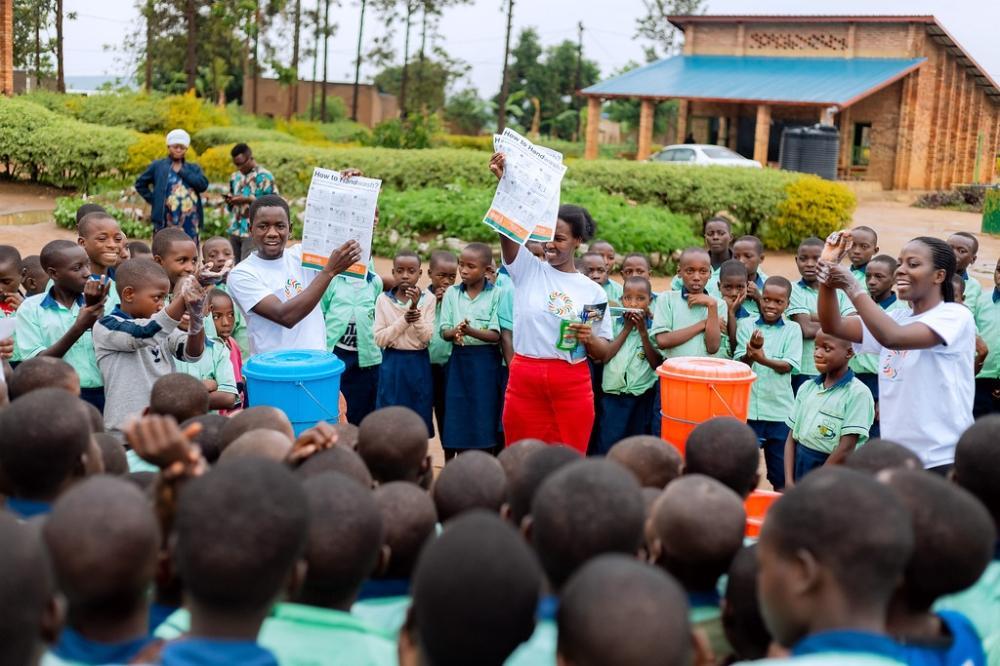Africa-Press – Rwanda. As the world looks ahead to major global conversations, including the UNGA and COP30, it is clear that sustaining progress in the fight against neglected tropical diseases (NTDs) will require moving beyond traditional approaches. This need is even more urgent given the rapidly evolving health financing landscape across Africa.
While political commitment and continuous funding are crucial, achieving elimination goals requires a new, powerful force: the innovative involvement of Africa’s youth through research, innovation, and advocacy.
NTDs are a diverse group of conditions affecting more than one billion people globally, primarily in vulnerable, underserved communities. Yet they are preventable, treatable, and, crucially, can be controlled or eliminated. Significant progress has been made, with 57 countries successfully eliminating at least one NTD. This demonstrates a clear path toward the World Health Organization’s (WHO) 2030 goal of 100 countries eliminating at least one NTD.
However, recent cuts to foreign aid and a decrease in global Official Development Assistance (ODA) pose a serious threat to this progress. The impact extends far beyond expired pharmaceuticals; it jeopardises essential awareness campaigns, scientific research for new treatments, and surveillance systems that prevent these diseases from escalating. By focusing on research and development driven by young people, we can not only find sustainable solutions but also maintain and even accelerate elimination efforts.
Young people are already proving to be key drivers in the elimination race. For example, Dr. Fatima Elbasri, a youth advocate from Sudan, is currently researching how NTDs affect the sexual and reproductive health and rights (SRHR) of young people. So far, her work highlights how these diseases can limit access to essential healthcare and worsen existing gender inequalities. Importantly, her research utilises a youth-led approach, directly engaging young people to understand what they know, what they see, and how technology can help.
This youth-led perspective is vital because it addresses a fundamental gap: NTDs are often overlooked, yet they have long-term impacts on health, dignity, and rights. By championing young voices and digital innovation, Fatima’s work aims to generate fresh, practical ideas that health systems can implement. Ultimately, we hope to help develop more inclusive, youth-led strategies that improve health outcomes and safeguard the rights of those living with NTDs.
Fatima is not alone. Young innovators across the continent are making significant contributions to this effort. What if their voices were consistently heard, supported, and empowered? We could unlock a new level of progress towards the WHO 2030 roadmap.
Focused research and development are our best tools for building a future free from NTDs. They can help African countries lead the way in creating safer, simpler diagnostic tools and more effective, patient-friendly treatments. Research also allows us to prevent and predict future outbreaks by understanding how pathogens spread, developing new vaccines or vector control methods, and guiding public health policies. Furthermore, we can leverage the power of artificial intelligence (AI) to speed up drug discovery, as demonstrated by the partnership between the Drugs for Neglected Diseases Initiative (DNDi) and Benevolent AI. Finally, data-driven research is essential for identifying gaps in elimination efforts, pinpointing regions that need more intervention, and breaking the cycle of intergenerational transmission.
Elimination efforts fundamentally rely on strong healthcare systems. As Professor Samuel Kariuki, the Continental Lead Africa and Eastern Africa Director at DNDi, reminds us, “We cannot meet these milestones without ongoing research and innovation. Together, we must remain the voice for neglected populations to ensure that the elimination agenda for NTDs can be met.”
To achieve this, we require sustained political will to allocate resources, strategic collaboration with key stakeholders, and a commitment from all endemic countries to endorse declarations such as the Kigali Declaration. By engaging young people not just as advocates, but as the researchers and innovators of today and tomorrow, we can create sustainable, homegrown strategies that will end NTDs across our continent. We have the potential; now we need the platform and support to get it done.
For More News And Analysis About Rwanda Follow Africa-Press






